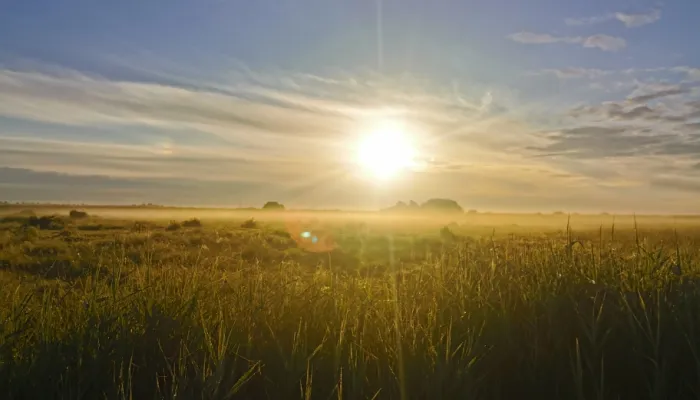A pay rise for farmers
Kent is known as the "Garden of England" due to its rich agricultural tradition and diverse farming practices. The county includes 85% of land classified as rural, and 62% of the land area is farmed with over 2,700 farms and smallholdings, covering more than 224,535 hectares of farmland and countryside. These farms play a crucial role in producing food and supporting the local economy.
However, intensive farming practices can have adverse effects on the environment and wildlife by increasing habitat loss or using fertilisers and pesticides that can result in water pollution and biodiversity decline. We know many farmers are keen to explore nature-friendly options but they must be supported financially to use more sustainable farming practises, together we can help drive agricultural productivity and protect nature too.
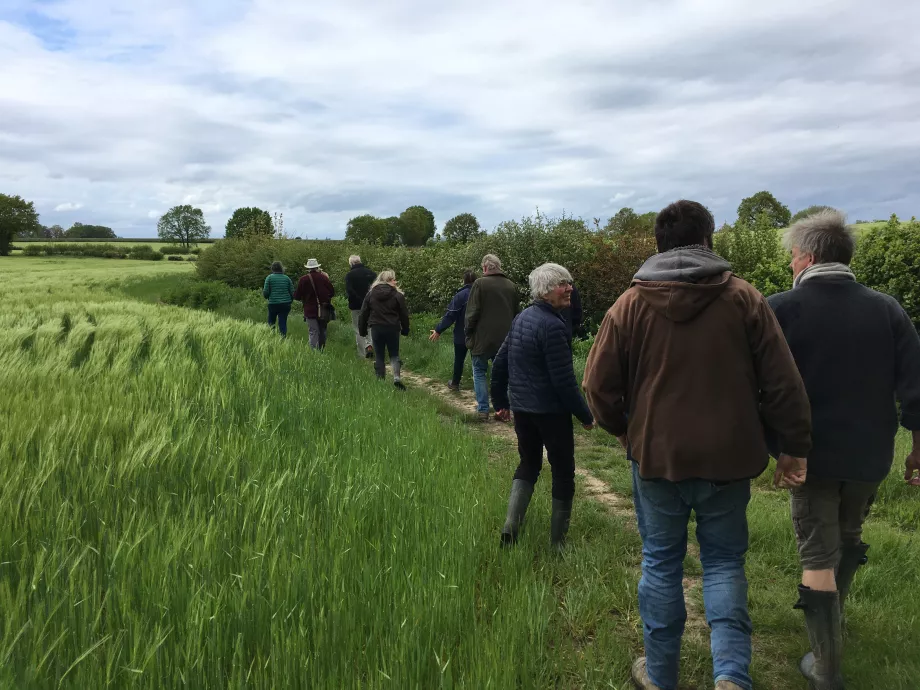
Group of members of the Marden Farmer cluster in a field. © Ben T
Making polluters pay
Despite its relatively small population of 1.7 million, Kent produces somewhere in the region of £18bn worth of goods and services, and is home to some of the largest and most well-known companies in the UK. Kent’s businesses cover an amazingly diverse array of industry sectors, from tourism to pharmaceuticals.
With environmental impacts on business now thought to be costing the global economy around $4.7tn every year, ensuring that Kent businesses have nature and climate plans in place is essential for promoting sustainability and protecting the environment. By requiring businesses to develop plans that consider the impact of their operations on nature and climate, we can drive positive change and encourage responsible practices. These plans should outline strategies to reduce carbon emissions, minimise waste, conserve natural resources, and support biodiversity conservation.
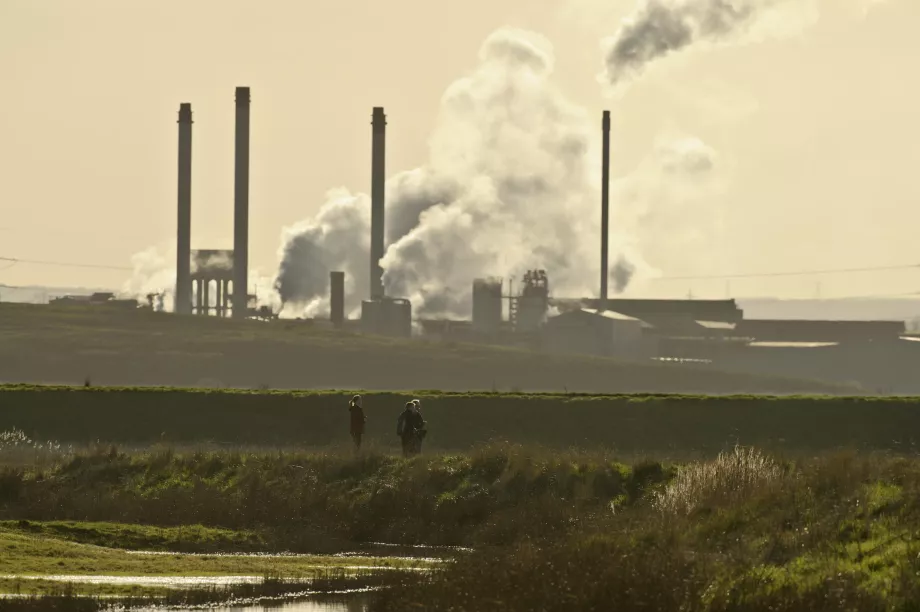
Elmley RSPB Reserve, Kent
Making more space for nature
Kent is home to a wide range of wildlife, with unique habitats such as chalk grasslands, marshes, wetlands, and ancient woodlands. However, like many other regions in the UK, Kent's natural environment has been under severe pressure from various human activities like habitat loss, climate change, pollution, and unsustainable land use practices, leading to biodiversity decline and ecosystem degradation.
With the implementation of the Wilder Kent 2030 Strategy, Kent Wildlife Trust is working to support and protect biodiversity by creating and connecting wildlife habitats across the county. Natural spaces provide many benefits to the local community. They have been shown to improve physical and mental health and well-being, promote tourism and recreation opportunities and enhance the overall quality of life. By investing in nature conservation, Kent can secure the natural and cultural heritage of the county, enhance the quality of life, and create sustainable and resilient communities.
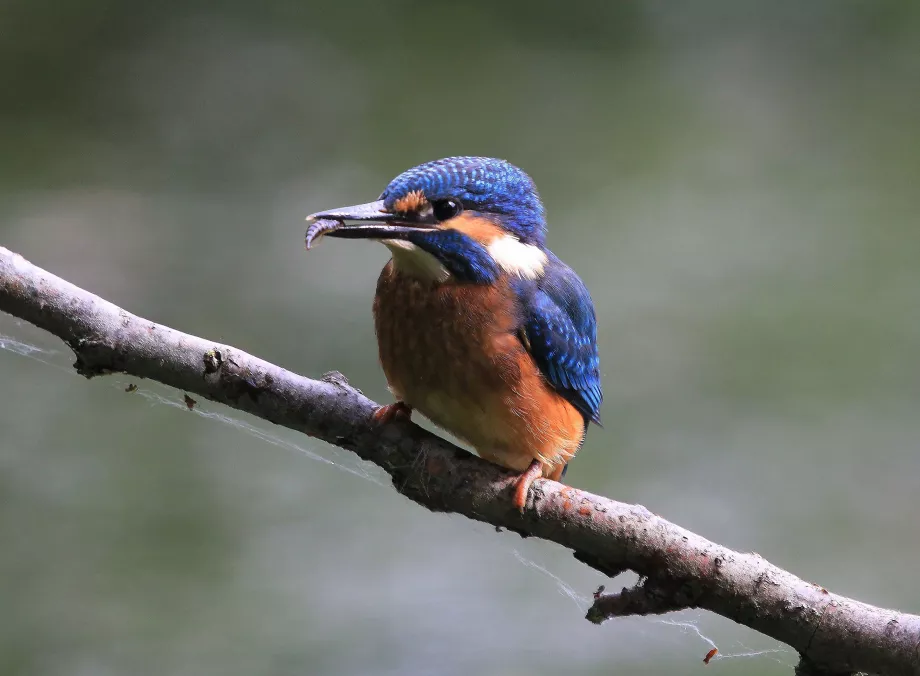
Kingfisher at Sevenoaks 2012 credit Dave Burden
Creating more green jobs
Green jobs are those that protect our natural environment or reduce our impact on it through sustainable practices. These include renewable energy generation and energy efficiency measures such as solar panels on homes, as well as recycling, composting and waste management services. Green jobs are vital if we are to meet our climate change targets, protect biodiversity and manage resources wisely.
Kent now also has around 56,000 people employed in the low carbon environmental goods and services sector with the Kent Environment Strategy targeting a 10% increase by the end of 2020 against a baseline of 52,000 jobs in 2012. According to the Local Government Association this number needs to rise to 163k jobs in the South East by 2050 representing 1.2% of the total job market.
Green jobs are an important part of the solution to climate change and nature recovery. They help us move towards a low-carbon economy, improve our natural environment, and protect our future. We know that creating green jobs will help boost local economies, create new jobs and support businesses in Kent to grow their workforce.
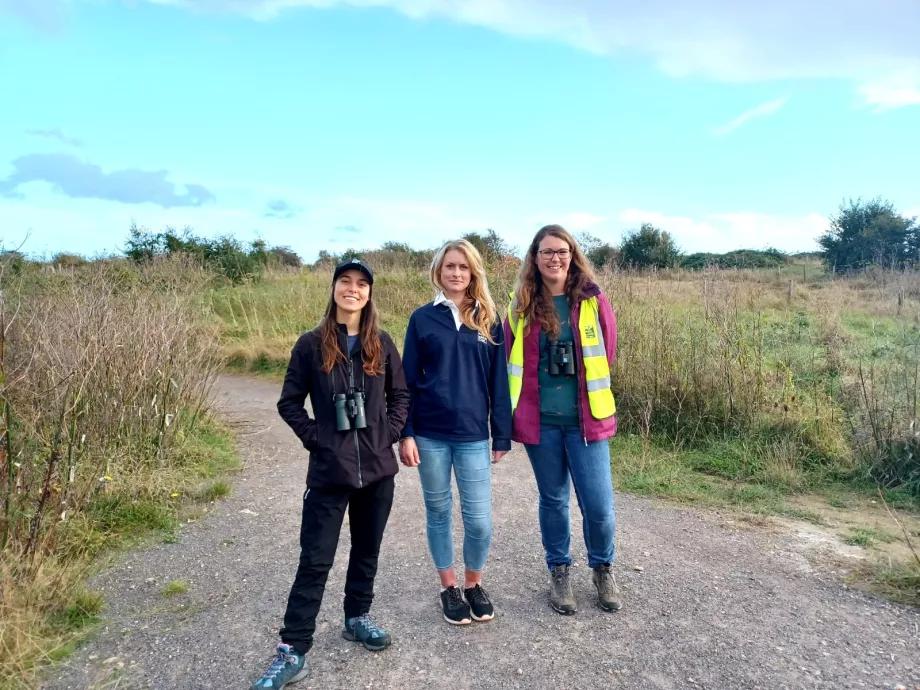
Wilder coast protected area warden volunteers
A right to a healthy environment
Water and air pollution in Kent have become increasingly important issues with latest reports showing as many as 78 days recorded as air pollution episodes per year and 922 deaths associated with air pollution in 2012. Water pollution is largely caused by chemical and nutrient pollution from sewage treatment work, agriculture, transport and industry. In Kent latest reports suggest that just 11 water bodies of the 28 measured meet the ‘good’ standard of ecological status and only 62% of sites monitored have been classified as ‘excellent’ against a National average of 67%.
By raising awareness about the detrimental effects of air and water pollution and advocating for sustainable practices, we can work towards creating a healthier environment for everyone in Kent.
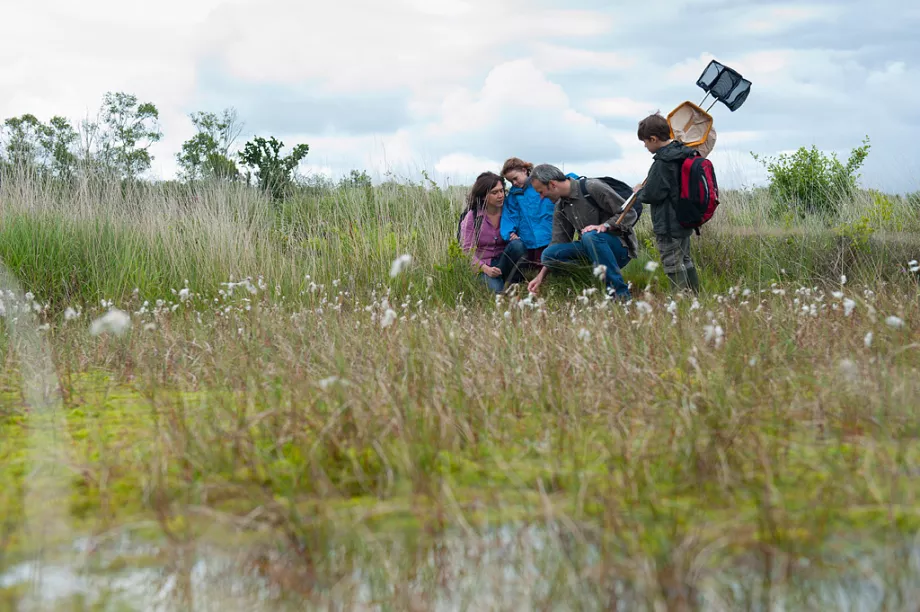
Family in a field
From these statistics, it’s clear that Kent's environmental challenges are wide-ranging and deeply concerning. But together we can make a difference and create a #WilderKent. Please join the campaign for Nature2030 by signing our open letter to party leaders and ask them to commit to including these five actions in their manifestos - Nature 2030: Support our plan to restore nature. (wildlifetrusts.org).
References
- State of Nature in Kent Report - State of Nature | Kent Nature
- Kent Environment Strategy - Kent Environment Strategy - Kent County Council
- Kent County Council Farming Economy Report - FarmingEconomySFIReportFINALPDF.pdf (kent.gov.uk)
- University of Kent Sustainability at Kent - Industry – Sustainability at Kent
- The Guardian - Smart businesses will act now to reduce their environmental impact | Guardian sustainable business | The Guardian
- Kent State of the Environment Report - Business-environmental-statistics.pdf (kent.gov.uk)
- Local Government Association - Home | Local Government Association

